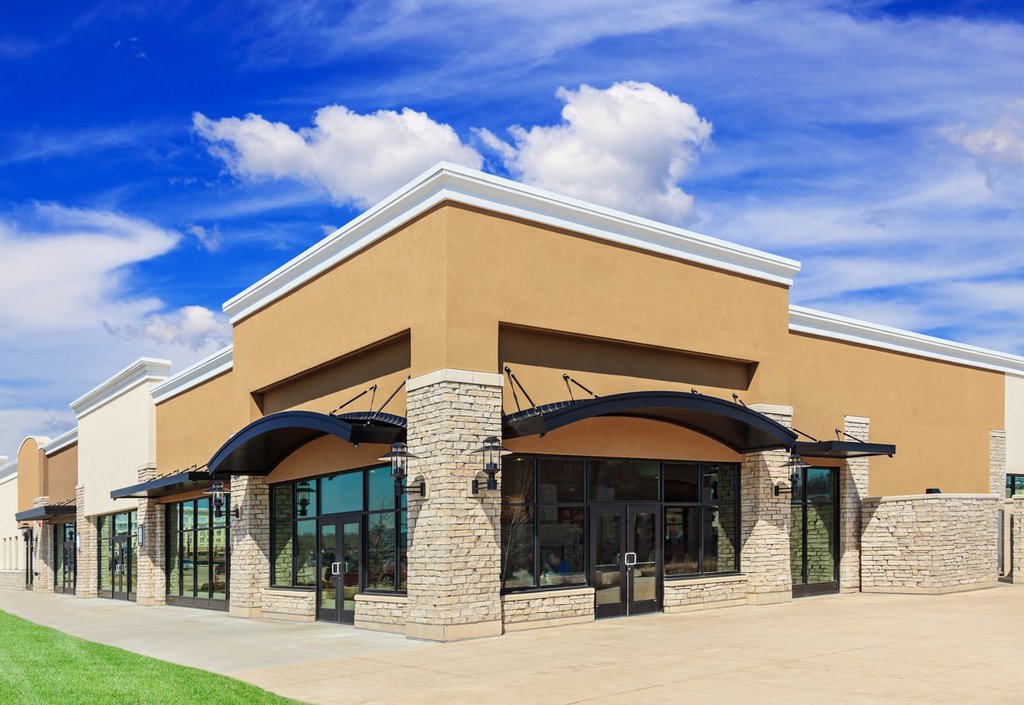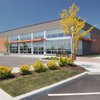6 Major Types of Commercial Real Estate Properties to Get a Mortgage For

6 MAJOR TYPES OF COMMERCIAL REAL ESTATE PROPERTIES TO GET A MORTGAGE FOR
The commercial real estate market in Toronto is an appealing one for many reasons. While it offers lucrative outcomes for successful investors, it is important to choose your commercial property wisely since commercial real estate investments generally come with greater risk than the residential market. In general, selecting a property that is situated in a busy location with a solid range of potential tenants is usually better than singularly focusing on a higher yield. If you are a first-time investor it could be worthwhile consulting a licensed commercial mortgage broker before you start your search. Below are six of the most common types of commercial real estate properties for which getting a mortgage could be a worthwhile investment.
1) Retail Properties
Retail properties in Toronto are commercially zoned and used exclusively for selling products and services rather than their manufacture. By definition they a retail zone houses shopping malls, retail stores, shopping centers etc. Generally speaking, businesses that occupy retail properties lease the space and pay rent periodically to the owner of the property.
Before getting a mortgage on retail properties though, some factors to consider before you even begin to get granular are main-road exposure, accessibility, and parking facilities. If these are deemed satisfactory, then look at the lease covenants and tenants. Strong, well-established anchor tenants drive traffic to the property and are also more likely to pursue a renewal of their lease when the lease term expires. As a retail investor, you should also speak to the centre management team to determine their growth plans, as well as understand what zoning uses are allowed in order to form a clearer picture of the potential development of the property in the future.
2) Office Properties
Office properties (which can be single tenant or multi-tenant) are another potentially solid investment for buyers to obtain a mortgage for as they typically carry a lower price tag, have minimum ongoing maintenance requirements and provide rental yields that are greater than the typical freehold property. Successful investors in this space have often looked for similar features to a residential property in terms of location and condition. In terms of location, buildings can be urban or suburban. Urban buildings are situated within the city and include the skyscrapers and high-rise buildings that form the iconic skylines of many global cities like Toronto. Suburban buildings on the other hand are not as tall and may often be bunched together in large office parks. Within the location criteria, the accessibility of the property to nearby shops, restaurants and public transport is also an important consideration with isolated locations becoming increasingly harder to lease. In terms of condition, building facilities such as heating and air conditioning, natural lighting, parking availabilities, and security can make or break an office property.
3) Industrial Properties
Industrial real estate is a type of commercial property bought and sold purely for business purposes. However, unlike the retail property, industrial properties house the manufacture of the products that are later sold in the retail outlets. This definition therefore encompasses storage, production and distribution facilities such as warehouses, factories, and other logistics management areas. Industrial properties are largely located outside of urban areas with the best ones located near major transportation routes to allow for greater flexibility, accessibility and transport cost savings.
One of the main reasons why industrial properties are attractive are because of their reasonably “sticky” cash flows. For a large retailer or e-commerce player, the switching costs of relocating their warehouses is substantial. Hence, industrial properties tend to have longer term leases compared to a residential property for example. Other benefits of the industrial property include lower maintenance costs and easier liquidation as there is always a market for a large industrial use building for businesses looking to begin or scale their operations.
4) Multi-family Properties
Multi-family commercial real estate is one that consists of 5 or more units. All real estate properties are split up into three classes: A, B and C. The ranking that a property receives is dependent on the overall quality of the property itself. In a multifamily context, Class A properties are the highest tier which command the highest rents and offer facilities such as pools, spas, fitness centers, barbecue areas, and other high-quality amenities. Class B, while being a step down from Class A is still considered good quality, but may not offer the range of amenities that a Class A would. Lastly, Class C properties are outdated and not of robust quality, but are affordable to rent.
The main drivers of this sub-sector of the commercial real estate market are the costs of ownership (vs. renting) and population growth. Within each of Class A, B and C, you may have low-rise, garden-style, mid-rise or high-rise properties. While low-rise and garden-style are largely found in suburban areas, mid- and high-rise are 5 or more stories tall and tend to be found in more densely populated urban areas.
5) Hotel Properties
The tourism and hospitality sector includes the establishments that provide accommodation, meals and other ancillary services for business or leisure travellers. While there are several sub-categories in this space, we will focus on the three that are most commonly seen in Canada: full-service hotels, limited service hotels and extended stay hotels. Full-service hotels include brand name hotel brands such as Ritz Carlton and Sheraton, and have facilities that include on-site restaurants, lounge rooms, and conference rooms that are additional to room service and bell service. Limited service hotels are usually boutique establishments and don’t usually provide the amenities mentioned above. Extended stay hotels have bigger rooms with a small kitchen, and are generally used by travellers intending to stay a week or more.
6) Land
Land is another common asset class within commercial real estate, and is generally divided into 3 types. Greenfield land is undeveloped land that includes farms, orchards, ranches etc. Brownfield land is land that has previously already been used for industrial or commercial needs, but can now be shaped for re-use. Infill land is land used for the development of real estate in urban locations.
After seeing a commercial real estate property for sale it is important to partner with a mortgage broker and financing provider who has deep expertise and resources and can help you with obtaining a mortgage for the commercial real estate, and puts your interests as their first priority. The experienced commercial mortgage brokers at Clover Mortgage can help you obtain the financing you need for your commercial real estate purchase or refinance. Happy hunting!
Call or text us today at 647-340-8640 or toll free at 1-800-673-2230 , or email us at commercial@clovermortgage.ca to speak with an experienced professional Commercial Mortgage Broker.





